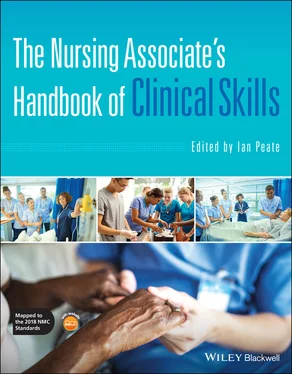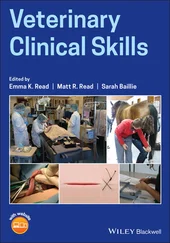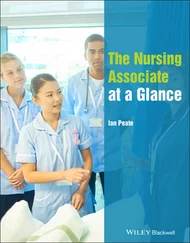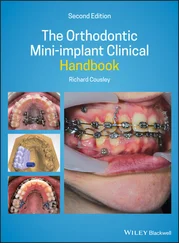The Nursing Associate's Handbook of Clinical Skills
Здесь есть возможность читать онлайн «The Nursing Associate's Handbook of Clinical Skills» — ознакомительный отрывок электронной книги совершенно бесплатно, а после прочтения отрывка купить полную версию. В некоторых случаях можно слушать аудио, скачать через торрент в формате fb2 и присутствует краткое содержание. Жанр: unrecognised, на английском языке. Описание произведения, (предисловие) а так же отзывы посетителей доступны на портале библиотеки ЛибКат.
- Название:The Nursing Associate's Handbook of Clinical Skills
- Автор:
- Жанр:
- Год:неизвестен
- ISBN:нет данных
- Рейтинг книги:4 / 5. Голосов: 1
-
Избранное:Добавить в избранное
- Отзывы:
-
Ваша оценка:
- 80
- 1
- 2
- 3
- 4
- 5
The Nursing Associate's Handbook of Clinical Skills: краткое содержание, описание и аннотация
Предлагаем к чтению аннотацию, описание, краткое содержание или предисловие (зависит от того, что написал сам автор книги «The Nursing Associate's Handbook of Clinical Skills»). Если вы не нашли необходимую информацию о книге — напишите в комментариях, мы постараемся отыскать её.
The Nursing Associate’s Handbook of Clinical Skills
The Nursing Associate’s Handbook of Clinical Skills
The Nursing Associate's Handbook of Clinical Skills — читать онлайн ознакомительный отрывок
Ниже представлен текст книги, разбитый по страницам. Система сохранения места последней прочитанной страницы, позволяет с удобством читать онлайн бесплатно книгу «The Nursing Associate's Handbook of Clinical Skills», без необходимости каждый раз заново искать на чём Вы остановились. Поставьте закладку, и сможете в любой момент перейти на страницу, на которой закончили чтение.
Интервал:
Закладка:
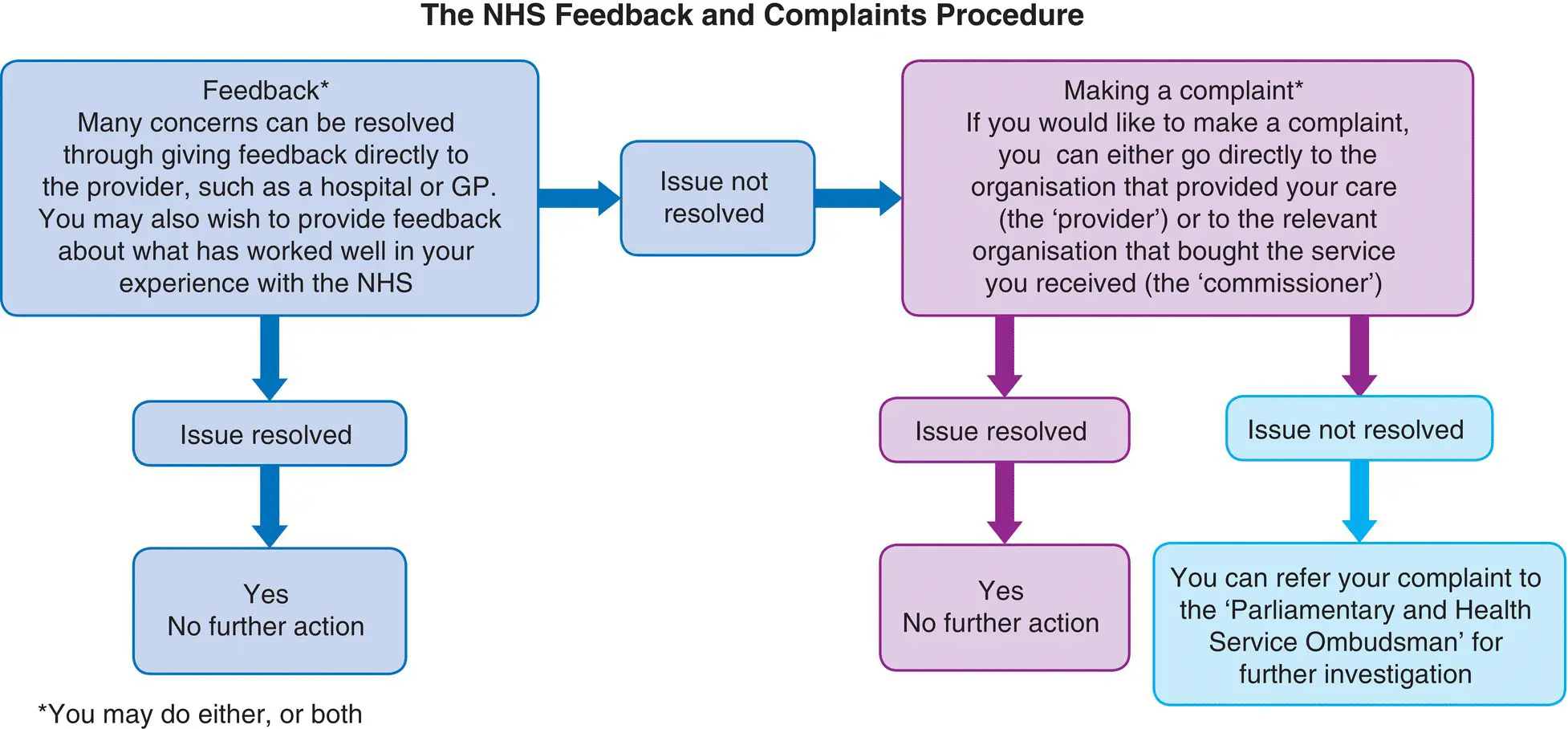
Figure 9.1 The NHS feedback and complaints procedure.
Figure 9.1provides an overview of the NHS feedback and complaints procedure.
How to Make a Complaint
The Department of Health and Social Care does not manage individual complaints. Complaints are dealt with through the NHS complaints procedure. A complaint can be made:
By telephone
By email
By post
In British Sign Language (BSL)
Blue Flag
 NHS England is required to make the necessary reasonable adjustments so as to receive, investigate and respond to any complaint. For those whose first language is not English, a translation and telephone interpreting service can be made available. Complaints can be accepted and respond to in alternative formats, for example, Braille.
NHS England is required to make the necessary reasonable adjustments so as to receive, investigate and respond to any complaint. For those whose first language is not English, a translation and telephone interpreting service can be made available. Complaints can be accepted and respond to in alternative formats, for example, Braille.
There are timescales associated with making a complaint. Complaints must be made not later than 12 months after the date on which the matter which is the subject of the complaint occurred or 12 months after the date on which the matter which is the subject of the complaint came to the notice of the complainant. It is still possible to investigate the complaint effectively and fairly, if there are good reasons for not having made the complaint within the timeframe. NHS England may decide to still consider the complaint, for example, longer periods of complaint timescales can apply to specific clinical areas.
Red Flag
 Responding to patient complaints within the specified timescale is important. NHS patients have 12 months from the date of an incident, or the date they first became aware of a problem, to make a complaint. It is important to be aware of the limits set out by the NHS complaints procedure for acknowledging, investigating and responding to complaints.
Responding to patient complaints within the specified timescale is important. NHS patients have 12 months from the date of an incident, or the date they first became aware of a problem, to make a complaint. It is important to be aware of the limits set out by the NHS complaints procedure for acknowledging, investigating and responding to complaints.
The Process
All complaints will be acknowledged no later than 3 working days after the day the complaint is received. This will usually be in writing; however, it can be given verbally in some situations; this is usually the exception as opposed to the norm. An offer should be made to discuss the following with the complainant:
The handling of the complaint
Timescales for responding
Expectations and desired outcome if unclear
If the complaint was given verbally, the complainant is given a copy of their verbal statement (this is considered the formal complaint) and asked to confirm that it represents the issues that they wish to raise.
The complainant is provided with a named contact with their contact details who will be their point of contact throughout the complaints process. A case officer will gather relevant information about the case, ensuring that this is accurately recorded. The complainant can expect that:
They will be kept up to date with the progress of their complaint.
If a case has passed the 40 working day target (or the timescale agreed with the complainant if different), the complainant (and, if relevant, the advocate) should receive an update every 10 working days thereafter the target has been surpassed. This may be by telephone, email or letter; the format, however, must be agreed with the complainant.
They can expect to receive a quality response with assurance that action has been taken to prevent a recurrence.
They will be informed of any learning.
On receipt of the investigation report, a response to the complaint will be prepared, and the case officer will include information on the next stages of the complaint’s procedure should the complainant wish to take matters further.
If the complaint is about more than one NHS organisation, the person only need to send a letter to one of the organisations; they (the NHS) should contact the other organisation and work with them to deal with the complaint. Where complaints involve more than one body, discussions will take place between the bodies concerned about the most appropriate body to take the lead in coordinating the complaint and communicating with the complainant. The same procedure is used to complain about adult social services arranged, provided or commissioned by the local authority. If there is a complaint, for example, about both a hospital and adult social care services, the person need only write just the one letter explaining all the problems and whoever the letter is addressed to will contact the other organisation. If NHS England receives a complaint involving several bodies, permission is required from the complainant before sharing or forwarding a complaint to another body; consent will need to be obtained.
As soon as it is reasonably possible after completing the investigation, and within the timescale agreed with the complainant, a formal response in writing is sent to the complainant which will be signed by the National Director or Nominated regional Director for sign off. The response will include:
An explanation of how the complaint has been considered
If appropriate, an apology
An explanation based on the facts
Whether the complaint in full or in part is upheld
The conclusions reached in relation to the complaint including any remedial action that the organisation considers to be appropriate
Confirmation that the organisation is satisfied any action has been or will be actioned
Where possible, the response will include details of any lessons learnt
Information and contact details of the Parliamentary and Health Service Ombudsman as the next stage of the NHS complaints process
Parliamentary and Health Service Ombudsman
The Parliamentary and Health Service Ombudsman was set up by Parliament to provide an independent complaint handling service for complaints that have not been resolved by the NHS in England and the UK government departments. It is not part of government or the NHS in England. It is neither a regulator nor a consumer champion.
If a complaint has been made under the NHS complaints procedure and the person is not satisfied with how it was dealt with at the first stage which is known as local resolution, they have a right to request an independent review by the Parliamentary and Health Service Ombudsman. However, the Parliamentary and Health Service Ombudsman may not be able to look at the complaint if:
legal action is already being taken
the person is planning to take legal action
there is a course of legal action open to the person that is reasonable or was reasonable to be followed
A request for an independent review must be made within 12 months of the incident occurring or when the person first became aware that something had gone wrong.
Many cases that are considered by the Parliamentary and Health Service Ombudsman can take some time, depending on the circumstances and complexity of the problem. If the Parliamentary and Health Service Ombudsman upholds the complaint, it can request the organisation to say sorry and provide an explanation of what went wrong. It may also call for changes to prevent the same incident happening again or request a review of procedures. The Parliamentary and Health Service Ombudsman can also order financial compensation; this, however, is normally lower than a court could award.
Читать дальшеИнтервал:
Закладка:
Похожие книги на «The Nursing Associate's Handbook of Clinical Skills»
Представляем Вашему вниманию похожие книги на «The Nursing Associate's Handbook of Clinical Skills» списком для выбора. Мы отобрали схожую по названию и смыслу литературу в надежде предоставить читателям больше вариантов отыскать новые, интересные, ещё непрочитанные произведения.
Обсуждение, отзывы о книге «The Nursing Associate's Handbook of Clinical Skills» и просто собственные мнения читателей. Оставьте ваши комментарии, напишите, что Вы думаете о произведении, его смысле или главных героях. Укажите что конкретно понравилось, а что нет, и почему Вы так считаете.
